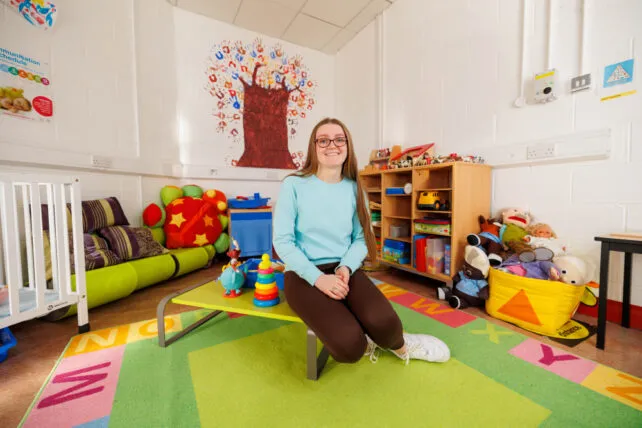Your PSI-accredited Applied Psychology course in the Midlands:
Our BSc in Applied Psychology is accredited by the Psychological Society of Ireland (PSI). The Psychological Society of Ireland is the national professional body for psychology and psychologists in the Republic of Ireland. Please see the list here of all PSI accredited undergraduate courses.
On successful completion of your 4-year degree here on the Athlone campus, students can apply for entry into postgraduate programmes in Psychology. Only PSI accredited undergraduate degrees allow you to progress to postgraduate training in Psychology (e.g., Doctorate in Clinical Psychology, Counselling Psychology and Educational Psychology). This degree confers eligibility forgraduate membership of both the PSI and the British Psychological Society. Therefore, students who complete our degree are also eligble for any postgrad courses that require BPS accreditation.
Psychology is the scientific study of the human mind and behaviour. It examines how we think, feel, act and interact with other people. You will develop skills in research, problem-solving, critical thinking and analysis, communication and professional development. If you are interested in similar types of questions, then this course is likely to be relevant to you.
Our course is an Applied Psychology course meaning we ensure that we have embedded practical elements into our course. We have a semester long work placement in 3rd year as well as a focus on small group workshops (e.g., counselling skills workshops, Applied Psychology Experimental labs, inferential statistics labs and many more). We also have practical assessment throughout the course with a mix of applied continuous assessment and final exams.
The course will be relevant to anyone wishing to pursue a longer-term career in psychology. It is also an ideal stepping stone to post-graduate study either within psychology or in other areas of social science.
Work placement
One of the unique features of this new programme is its applied nature. TUS’s Department of Social Science has longstanding relationships with service providers across a range of health and social services. It includes areas such as Early Years Care & Education, Social Care, Mental Health Services, Intellectual Disability, Youth Work, Older People and Community Development.
In 3rd year students will embark on a semester long work placement. Here you will undertake working in a psychology-informed environment under supervision where you will gain experience in a work-based setting. Work placement gives our students the chance to apply all of the theoretical knowledge and practical skills they have developed since 1st year. We have a dedicated Work Placement coordinator who sources high quality placements for each student covering a wide variety of areas and interests from mental health to research. Examples of our placements include Regari Recovery College, Brothers of Charity, Juniper Tree Autism Services, TUS research placements, TUS student counselling, Ability West among many others.
Erasmus
As an alternative to Work Placement we also offer a small number of students to study abroad for the semester in the University of Valencia in Spain. In Valencia, you can continue your Applied Psychology studies taught through English while enjoying a new city and culture. You will have the opportunity to learn Spanish in 2nd and 3rd year as additional classes in Athlone to prepare you for your semester abroad before you travel. With the support of our dedicated Applied Psychology Erasmus coordinator and the TUS International Office you are in safe hands to enjoy this once in a lifetime study experience.





